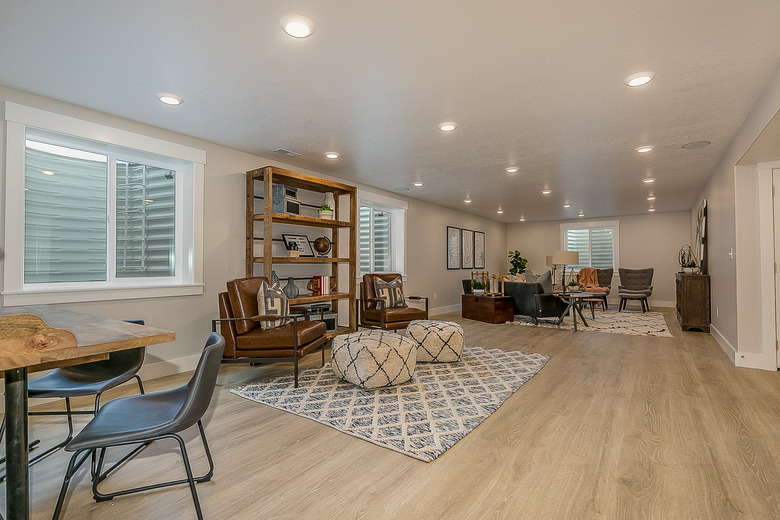Should You Go Into The Basement In An Earthquake?
We may receive a commission on purchases made from links.
Knowing where to go and what to do during an earthquake can help keep you safe. While a powerful earthquake could be catastrophic, it's important to note that it's falling debris, and not the ground's movement, that causes most injuries and deaths. Basements are safe during an earthquake, but you shouldn't try to get there once the shaking starts.
Tip
It's usually safest to avoid moving to a different room when an earthquake happens. If you're already in the basement, it's safe to stay there, but you shouldn't try to move there during an earthquake.
General Earthquake Considerations
General Earthquake Considerations
Most earthquake injuries occur when people try to move to a location within the building that they think is safer, or they try to go outdoors after the earthquake starts. Thus, if you're inside your basement when an earthquake hits, by all means, stay there.
However, if you're on an upper level, don't try to move to the basement. Trying to go down the basement stairs during an earthquake could cause serious injury if it makes you fall down the stairs. It's best to stay where you are, basement or not, and take cover, crawling to a safer area the shortest distance possible if necessary.
Take Cover Indoors
Take Cover Indoors
As soon you suspect an earthquake is in progress, drop to the floor and protect your head with your arms. Move away from outer walls, glass, light fixtures and furniture that might tip, such as a hutch or wall unit. Inside walls are safer as they're the least likely to collapse and can protect you against falling objects.
If there's a heavy table nearby, get underneath it and hold on tightly. If the table moves, try to move with it. If you're in bed when the earthquake happens, stay there unless there's a chance of something large falling on you. Use your pillow to protect your head and neck.
Should you be in a public building during an earthquake, move away from outside walls, glass and fixtures that could fall on you, and take cover. Stay away from the doorways, as a crowd could trap you in a dangerous space near an exterior wall or doorway.
Stay Safe Outside
Stay Safe Outside
Stay out in the open if you're outdoors when an earthquake strikes, away from anything that could fall on you, such as buildings, power lines, trees and utility poles. Once you're outside, do not try to go inside a building, as it's very dangerous to be near exterior walls and doorways. When driving during an earthquake, pull out of traffic and stop your car in the first safe place away from bridges, overpasses, poles and other hazards. Be aware of the dangers of post-earthquake events, including landslides in mountainous areas and tsunamis in coastal areas.
Preparing for an Earthquake
Preparing for an Earthquake
Advance planning can help make your home earthquake-resistant and keep you safer when a quake hits. Check your home for shelves that need fastening to walls. It's also wise to rearrange your shelves and cabinets to store heavy and breakable items near the bottom.
Consider moving heavy decorations such as mirrors and art away from beds and places where people sit. Lock flammable chemicals in secure cabinets, preferably in a shed rather than inside your home. Make a note of the safest places in each room of your home and hold practice drills with your family so that moving to these spaces quickly becomes second nature.
